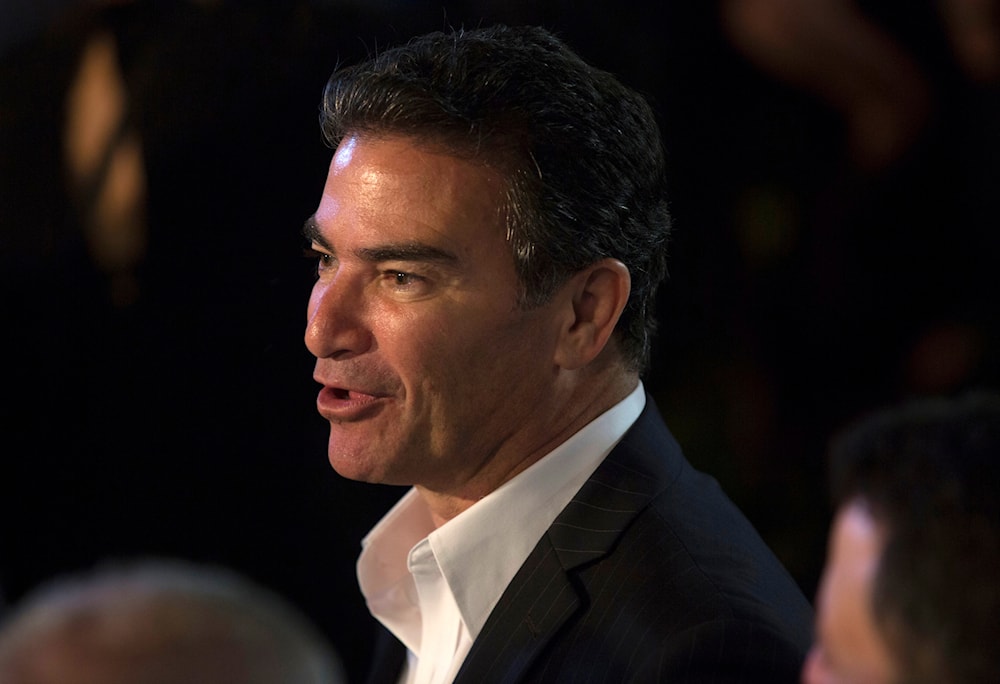'Israel' to pay steep price to get captives back: Former Mossad chief
Former Mossad chief Yossi Cohen says the Israeli occupation would need five years before recovering from all the damages it sustained since October 7.
-

Then-Mossad chief Yossi Cohen at the residence of Ambassador to 'Israel', David Friedman, in 'Herzilya Pituah', occupied Palestine, July 3, 2017 (AP)
Former Israeli Mossad chief Yossi Cohen said "Israel" would need 5 years after the war on Gaza to recover, and it would have to pay a hefty price to regain the captives taken by the Palestinian Resistance from the Gaza Strip.
In an interview with the Israeli KAN public broadcaster, Cohen affirmed that the prisoner exchange, "Will have a high cost," especially to "reach a good deal. As is known, we have had a weak hand since October 7, and now we are overcoming this difficulty."
"The right deal must be approved by the War Cabinet, and perhaps by the entire Israeli government, with very tough terms for Israel," he underlined.
Cohen believed that "the deal should be in one phase only, during which all the prisoners are released."
In response to a question about the necessity of a war on the northern front, i.e., with Lebanon, Cohen said: "I believe that one day we will need a war in the north, but not now, and I will explain why not now: because we are very exhausted from the war in the south, and I think the duration of the war in the south is unknown, and no one can say when it will stop and if it will stop."
As for the day after, the former Mossad chief affirmed that it would not be "a prosperous and bright day," pointing out that "the current residents in Gaza have not left, as two million people are still inside the Strip."
Ceasefire talks
Reuters claimed it had in an exclusive interview in which a senior Hamas official revealed the details of a proposed ceasefire plan aimed at de-escalating the Israeli aggression on Gaza.
The proposal, outlined in three distinct stages, addresses the release of settlers, recruits, and the deceased.
According to the senior Hamas official cited by Reuters, the first stage of the proposed ceasefire involves the immediate release of settlers, including women, children, adults, and patients who were captured by the Palestinian Resistance during Operation al-Aqsa Flood.
Moving on to the second stage, the Hamas top official disclosed that the plan calls for the release of all male and female Israeli recruits also taken by the Palestinian Resistance during the operation.
The third and final stage of the proposed ceasefire is centered around the release of the bodies of those killed in action, most notably due to the indiscriminate Israeli bombardment of the Gaza Strip, which killed dozens of its own setters.
Notably, the senior Hamas leader emphasized that military operations on both sides would come to a halt during each of the three stages.
When questioned about the specific number of prisoners held by the Israeli occupation requested to be released from the Palestinian side, the Hamas leader stated that no figure had been specified. Instead, the matter is left to the negotiation process.

 4 Min Read
4 Min Read








